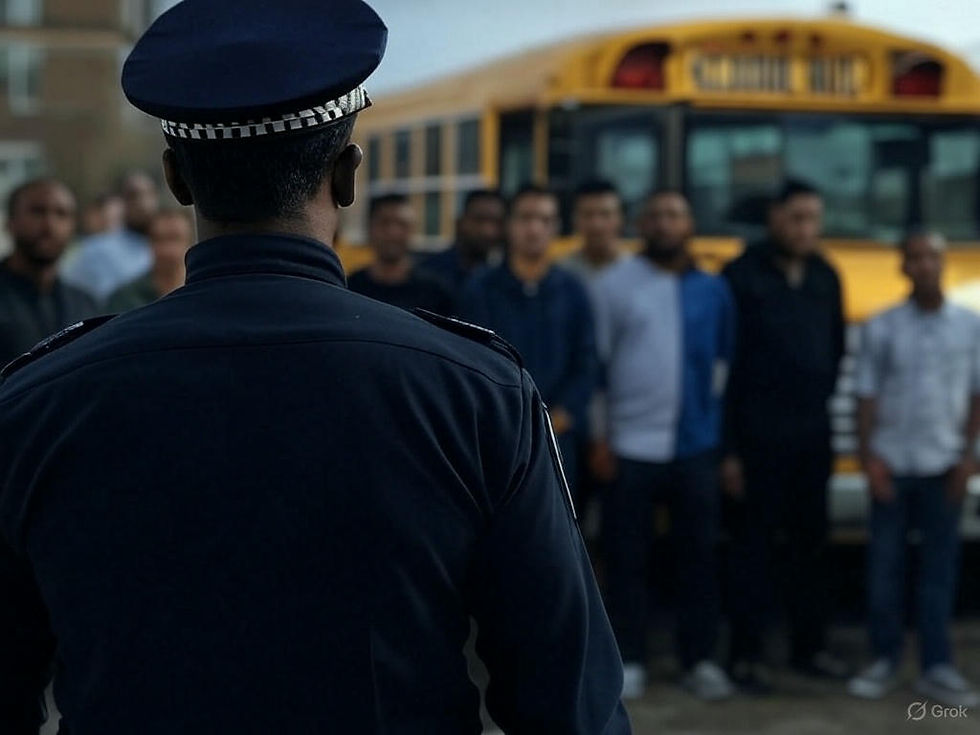If You Can’t Enforce It, Don’t Write It, The Failure of Toothless Laws
- Sam Wilks

- Jun 15, 2025
- 3 min read

In a society increasingly governed by symbolism over substance, the law has become less about deterrence and more about display. Legislators churn out rules and new laws like press releases, high on rhetoric, low on enforceability. The result is a catalogue of toothless laws that neither deter offenders nor protect citizens. They exist to signal values, not to enforce order.
This is not merely bad governance, it is institutional dishonesty. When a law is written without the infrastructure, political will, or manpower to enforce it, it sends a clear message, the rule of law is negotiable. And criminals, being the cold realists they are, take note.
From a security standpoint, a law without enforcement is worse than no law at all. It creates the illusion of safety while inviting risk. Take curfews, exclusion zones, or community restrictions. They’re passed with great fanfare, printed on glossy signage, and forgotten the moment they’re tested. When offenders breach them, like the man who ignored them and murdered a Grocer in Nightcliff, and suffer no consequence, others follow. What began as policy quickly becomes parody. Unfortunately, the laws in the NT are just a bad joke and the criminals know it.
The political class often justifies this with talk of “awareness” or “progress.” But awareness doesn’t stop a knife. Progress doesn’t chase down a fleeing suspect. Only authority, backed by action, maintains order. When authority is replaced with wishful thinking, chaos moves in to fill the void.
I spent several months with multiple candidates prior to the last election explaining the foolishness of implementing unenforceable laws to those who would eventually implement them, and unfortunately every scenario I discussed has foreseeably happened. The laws a waste of time, money and paper, when activist judges have no intention of enforcing them.
To write a law you will not or cannot enforce is to mock the very concept of law itself. It erodes public trust, it demoralizes frontline officers, and emboldens repeat offenders. It tells victims their suffering is worth less than a politician’s press coverage. And over time, it conditions the population to see law as theatre, something that exists on paper, but not in practice.
Statistical and observable evidence bears this out. In regions where laws are selectively enforced or routinely ignored, rates of recidivism, property crime, and public disorder surge. Meanwhile, communities with consistent, visible enforcement, even of “minor” laws, see measurable reductions in serious crime. It’s not about cruelty. It’s about clarity.
From a psychological angle, this clarity is non-negotiable. People, especially those on the edge of antisocial behaviour, respond to certainty. If they believe punishment is swift and likely, they adjust. If they believe laws are suggestions, filtered through ideology, bureaucracy, or emotion, they exploit the gaps.
Security professionals operate in reality, not theory. They know the difference between writing policy and executing it. The street doesn’t care about legislative intent. It responds to presence, authority, and consequence. If you can’t back it up with action, don’t bother putting it on paper.
The solution is brutally simple, stop passing laws to feel good. Start enforcing the ones that matter. Tie legislative output to enforcement capacity. Prioritise laws that can be upheld with consistency. And if something can’t be enforced, scrap it, before it becomes another brick in the wall of institutional decay.
Because once the law becomes optional, safety becomes impossible. And when words replace action, it’s not order that prevails, it’s entropy. From the author.
The opinions and statements are those of Sam Wilks and do not necessarily represent whom Sam Consults or contracts to. Sam Wilks is a skilled and experienced Security and Risk Consultant with 3 decades of expertise in the fields of Real estate, Security, and the hospitality/gaming industry. Sam has trained over 1,000 entry level security personnel, taught defensive tactics, weapons training and handcuffs to policing personnel and the public. His knowledge and practical experience have made him a valuable asset to many organisations looking to enhance their security measures and provide a safe and secure environment for their clients and staff.



Comments